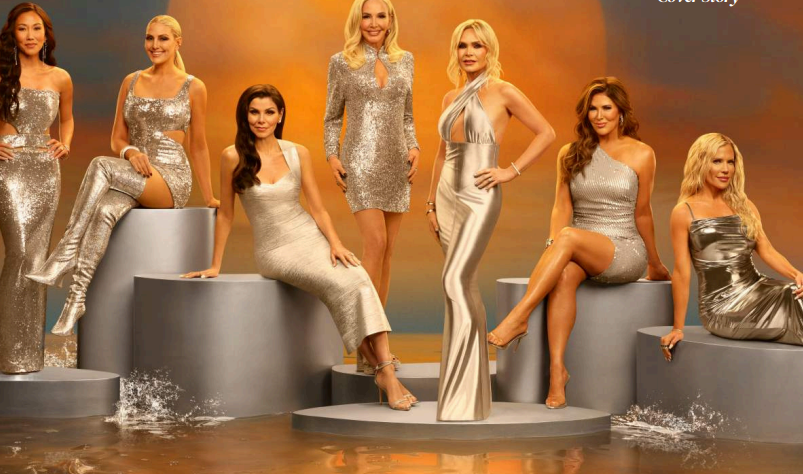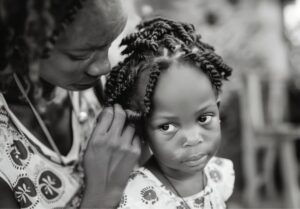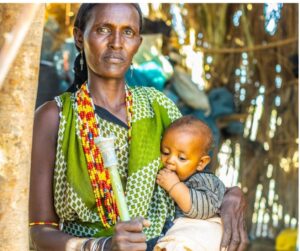By Oluchi Obiahu
Get Ready for the Tea!
Hot gossip, daunting topics, betrayal, love and unbreakable friendships. The real Housewives feuds, these shows offer a mirror into the complexities of relationships, especially among women navigating success, status, and personal growth. Let’s dig into the sizzling hot takes and enlightening discussions on the real housewives franchise.
As we celebrate love in all its forms this Valentine’s Day. it’s worth turning our attention to one of the most polarising yet fascinating cultural phenomena of the 21st century. the real housewives show has become a global juggernaut, offering a kaleidoscope of female relationships; friendship, rivalries and alliance. But what does this glossy, drama-filled mirror reflect about women and their connections? Let’s break it down, with a dash of wit, a sprinkle of statistics, and a healthy dose of
.
The Housewives Phenomenon: A Global Sisterhood (Sort Of)
Since its debut in 2006 with The Real Housewives of Orange County, the franchise has expanded to over 10 cities worldwide, including Johannesburg, Lagos, Dubai, and Auckland.
According to Bravo, the series averages 1.5 million viewers per episode in the US alone, with a fan base that’s 70% female. While often perceived as a glossy display of affluence and intense conflicts, the franchise is much more than designer bags and lavish vacations. It provides a lens into the complexities of modern female relationships, the triumphs and tribulations of love, and the evolving roles of women in society. It
also offers a fascinating look into the power of sisterhood and the realities of romance in high-stakes social circles. The show’s success lies in its ability to showcase women in all their complexity; ambitious, flawed, vulnerable, and, yes, occasionally outrageous. Beyond the surface of glamorous dinner parties and explosive arguments lies a deeper exploration of female relationships. As the franchise continues to evolve, its impact on
women, both as entertainment and as a reflection of societal norms, remains undeniable.
Take The Real Housewives of Atlanta, for instance. The show has been praised for its portrayal of Black women as multifaceted individuals, from Kandi Burruss’ entrepreneurial hustle to NeNe Leakes’ unapologetic confidence. As Leakes once quipped, “I’m not just a housewife; I’m a businesswoman, a mother, and a friend. And I’m not afraid to speak my mind.” This sentiment resonates with many women who see themselves reflected in these characters; women who are unafraid to take up space and demand respect.
The Universal Appeal of The Real Housewives
At first glance, The Real Housewives may seem like a whirlwind of extravagant lifestyles, headline worthy feuds, and champagne-fueled confrontations. However, beneath the surface, the franchise delves into the lived realities of women navigating friendships, careers and family, all under the relentless gaze of the public eye.
From the United States of America to Nigeria, the show has resonated with audiences because it masterfully intertwines aspirational luxury with raw, emotional struggles.
The series presents a curated reality, yet the joys and heartbreaks feel remarkably authentic. Viewers see women
forging empires, sustaining friendships, and, sometimes, spectacularly imploding under the weight of personal and professional pressures.
Despite the geographical and cultural differences among the various reiterations of the show, certain themes remain universal; friendship, love, betrayal, and redemption. Whether in the bustling streets of Beverly Hills or the vibrant scenes of Lagos, the franchise provides a compelling exploration of the modern woman: resilient, ambitious, and complex.
Friendship or Frenemy-ship? The Double Edged Sword
One of the most compelling aspects of The Real Housewives is its portrayal of female friendships. These relationships are often intense, passionate, and, at times, toxic. In The Real Housewives of New York City, Bethenny Frankel and Carole Radziwill’s friendship was a fan favorite, until it wasn’t. Their fallout, played
out on screen, was a masterclass in how even the closest bonds can unravel under the pressures of fame and differing priorities. Frankel later reflected, “Friendships change, and that’s okay. What’s not okay is pretending everything’s fine when it’s not.”
On the flip side, we’ve seen relationships like Phaedra Parks and Kenya Moore’s dissolve into irreparable tension. The drama, while entertaining, often highlights real emotions, betrayal, forgiveness, and the challenge of rebuilding trust.
While the drama makes for addictive viewing, it also raises questions about the messages being sent to younger
audiences. A 2020 study by the Geena Davis Institute on Gender in Media found that reality TV often reinforces stereotypes of women as catty and competitive. However, the same study noted that shows like The Real Housewives also provide a platform for women to express their opinions and assert their independence, a nuanced portrayal that can be both empowering and problematic.
Love in the Limelight: Romance, Heartbreak, and Second Chances
Love is a cornerstone of The Real Housewives franchise, but much like its friendships, romance on the show is anything but predictable. From whirlwind romances and fairytale weddings to devastating breakups and explosive divorces, the franchise provides an unfiltered look into the highs and lows of modern relationships, especially for women who are financially independent, socially powerful, and unafraid to demand what
they deserve.
For many Housewives, love is a battleground where power dynamics, personal growth, and societal expectations collide. The show has tackled issues like infidelity, divorce, remarriage, and even the challenges of dating as a high-profile woman. The Real Housewives of Atlanta star Nene Leakes gave audiences an intimate look into her tumultuous love story, divorcing her husband Gregg Leakes in 2011, only to remarry him two years
later in a televised wedding special. Their journey of reconciliation resonated deeply with fans, proving that love isn’t always linear but can be filled with second chances.
On the other side of the world, The Real Housewives of Lagos offers a fresh cultural perspective on love, blending tradition with modernity. The show highlights the unique pressures of marriage within African high society, where societal expectations, family influence, and personal ambition often clash. Many of the Lagos housewives navigate relationships in an environment where success and wealth are both empowering and intimidating in the dating world.
Yet, for all the heartaches and public scandals, The Real Housewives franchise also celebrates love in its most
extravagant and joyous forms. From million-dollar weddings to breathtaking proposals, these women don’t just fall in love, they do it in style.
Who can forget Kandi Burruss’s over-the-top Coming to America-themed wedding on RHOA or Paris Hilton’s mom, Kathy Hilton, reflecting on decades of marriage on RHOBH? These moments remind audiences that love, whether passionate, tumultuous, or enduring; remains at the core of the human experience.
The Real Housewives teaches a valuable lesson: love is not just about grand gestures or dramatic breakups. It’s about commitment, growth, forgiveness, and the courage to walk away when necessary. Whether romantic or platonic, love thrives on respect, communication, and resilience; qualities that these women, for better or worse, continue to embody in the limelight.
Empowerment or Exploitation? The Housewives’ Dilemma
The franchise has been both lauded and criticized for its impact on women’s empowerment. On one hand, it provides a platform for women to showcase their talents, ambitions, and entrepreneurial pursuits. Many of the women featured on the show have leveraged their reality TV fame to build successful businesses, launch brands, and expand their influence far beyond the world of reality television.
Take Lisa Vanderpump from The Real Housewives of Beverly Hills, for example. She transformed her popularity into a lucrative business empire, owning multiple restaurants, a luxury pet accessories line, and even starring in her own spin-off show, Vanderpump Rules. Similarly, Phaedra Parks from The Real Housewives of Atlanta has successfully balanced her identity as a reality star with her career as an accomplished attorney and mortuary business owner. These women exemplify the notion that femininity and ambition are not mutually exclusive; one can be glamorous and still be fiercely goal-oriented.
However, the flip side of the franchise presents a starkly different reality. One that raises concerns about whether these women are being empowered or exploited for entertainment value. The intense scrutiny and relentless pressure to be entertaining often push the cast members into highly stressful situations, where personal conflicts and vulnerabilities are put on display for millions to see. The expectation to always be camera-ready and to perform can take a serious toll on their mental and emotional well-being.
For example, Monique Samuels from The Real Housewives of Potomac candidly spoke about her struggles with anxiety, describing the experience of being on the show as akin to living in a pressure cooker. “You have to be ‘on’ all the time, and it’s exhausting,” she admitted. This sentiment has been echoed by other housewives who have faced public scrutiny, social media harassment, and even personal breakdowns as a result of their
time on the show. Bethenny Frankel, a standout from The Real Housewives of New York City, has been vocal about the emotional toll reality TV took on her, especially during difficult personal moments like her divorce and custody battle.
Beyond the personal struggles, the show’s producers have been accused of prioritizing drama over the well-being of their cast members.
Storylines are often manipulated or exaggerated to create tension, and conflicts between the women are sometimes encouraged for the sake of ratings. This raises ethical questions about reality TV’s responsibility toward its stars. Should production companies offer more mental health support? Should there be guidelines to protect cast members from emotional distress?
While The Real Housewives undeniably provides women with financial and professional opportunities, the question remains: at what cost? Are these women being empowered through the exposure and platform they receive, or are they being exploited in a system that thrives on drama, conflict, and public scrutiny? The answer, much like the franchise itself, is layered and complex.
The Global Perspective: Love and Relationships Across Cultures
The international franchises offer a fascinating glimpse into how love and relationships are perceived in different cultures. In The Real Housewives of Lagos, viewers are introduced to a world of opulence and tradition, where family and community play a central role. As cast member Toyin Lawani Adebayo put it, “In Nigeria, your success isn’t just about you; it’s about your family and your legacy.” This sense of collective responsibility is a stark contrast to the individualistic ethos of some of the American franchises.
Similarly, The Real Housewives of Johannesburg highlights the complexities of post-apartheid South Africa, where race and class intersect in unique ways. Cast member Christall Kay shared, “We’re not just housewives; we’re women who are rebuilding our country and redefining what it means to be successful.” These global perspectives remind us that empowerment looks different in different contexts, and there’s no one-size-fits-all approach to success.
The Impact on Women and Girls: A Mixed Bag
So, what does all this mean for women and girls watching at home? The answer, as with most things, is complicated. On the positive side, the show offers a platform for women to tell their stories on their own
terms. It challenges traditional notions of femininity and shows that women can be ambitious, assertive, and unapologetically themselves. As The Real Housewives of Melbourne’s Gina Liano famously declared, “I’m not here to make friends; I’m here to make history.”
However, the show’s emphasis on wealth and materialism can send problematic messages to younger viewers. A 2019 survey by the UK’s Media Trust found that 62% of girls aged 11-18 felt pressure to look a certain way after watching reality TV. Additionally, the frequent conflicts and betrayals can perpetuate the stereotype that women
are inherently competitive and unable to support each other.
The Final Toast: Love, Drama, and the Housewives’ Legacy
At its core, The Real Housewives is a mirror reflecting the beautiful chaos of human relationships; romantic, platonic, and everything in between. Beyond the dramatic showdowns, The Real Housewives franchise holds a mirror to society, reflecting evolving gender roles, the complexities of female relationships, and the ever-changing definitions of success.
It encapsulates the multifaceted nature of modern womanhood. Women balancing their ambition, love, and
friendships in a world that constantly demands more.
The franchise may not always get it right, but it has undoubtedly sparked important conversations about female
empowerment, representation, and the complexities of modern womanhood. Perhaps the greatest takeaway from the series is that real friendships, just like romantic relationships, require work, forgiveness, and mutual respect. And while we may not always get along, the true queens know when to fight for their friendships and when to gracefully walk away.
Whether you’re a die-hard fan or a casual viewer, there’s no denying the cultural impact of these glamorous, flawed, and utterly compelling women. As The Real Housewives of Dubai’s Chanel Ayan once said, “Life is too short to be boring. Love hard, fight harder, and always keep your eyelashes on point.” And
really, isn’t that what love and life are all about?
So, the real question is: are you the drama? Or are you the glue holding it all together? Either way, one thing is certain:
“Love and friendship will always be at the heart of The Real Housewives franchise.”







